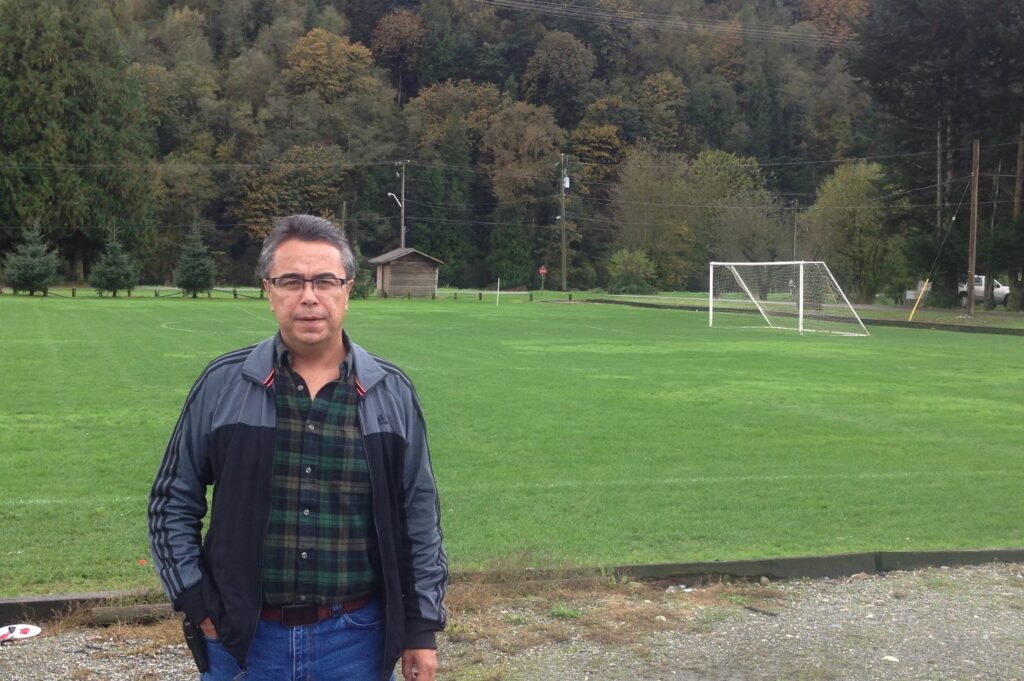
VANCOUVER — The chairman of a new Indigenous advisory committee at the Canada Energy Regulator says he wants to fix a system that has treated First Nations, Inuit and Metis people as an “afterthought.”
Tribal Chief Tyrone McNeil, a Sto:lo member in British Columbia’s Fraser Valley, said he doesn’t view it as a problem that the committee has no decision-making power over specific projects.
McNeil said his group, made up of nine members, provides strategic advice to the energy regulator on incorporating Indigenous Peoples in natural resource development and oversight.
The committee meets regularly with the board and senior management, and he said in an interview Thursday he wants to take advantage of that and “fix the big system overall.”
“Quite often, in other aspects, we’re brought in as an afterthought or an add-on. In this case, we’re part of the CER act itself,” he said. “The influence is compounded when you have a willing partner sitting with us at the table _ not at the other side of the table, but with us at the table.
“This thing has tremendous potential, in short order, to influence projects going forward.”
While McNeil said he’s not focused on existing projects like the Trans Mountain pipeline expansion, the committee’s advice may be applied to such projects and have an indirect effect on operations.
Prime Minister Justin Trudeau’s government replaced the National Energy Board with the new regulator in 2019 amid a number of battles with First Nations over pipelines. His government has also contended with long-standing concerns from investors that building natural resource projects is too difficult in Canada.
The Canada Energy Regulator Act aimed to clear the path forward for such projects by bringing Indigenous Peoples into the fold, requiring the regulator to create the advisory committee.
The committee is still in its early stages and recently met to endorse its terms of reference, which state its purpose is to transform the relationship between Indigenous Peoples and the regulator.
McNeil said he sees a “huge difference” between the old energy board and the new organization.
“We had our battles with the NEB back in the day, but once I read the act, there was no fear,” he said. “I saw so much opportunity, so much potential, I couldn’t say no.”
He said when Indigenous people encountered problems in the past with natural resource companies, regulators and governments, it was often because “they have no idea who we are.”
“We’re all distinct. We’re all different,” he said. “We’re building the cultural competency at the CER as a whole.”
He noted the act also includes a commitment to the United Nations Declaration on the Rights of Indigenous Peoples, which requires “free, prior and informed consent.” The committee will help the regulator build a new consultation model that factors in this requirement, which means engaging with communities at the earliest stages, McNeil said.
“I feel really strongly that’s going to compel companies to do a whole lot more work in advance so they have more confidence before they bring (projects forward),” he said.
Cassie Doyle, board chairwoman at the regulator, said the Indigenous committee will support systemic change in the organization and help it achieve its overall goal of reconciliation.
“This Indigenous advisory committee is unique in that it’s operating at a strategic level. We have already received very good advice (from it),” she said.
The regulator’s CEO, Gitane De Silva, said that advice has included, for example, how it should be transforming its approach to Indigenous oversight and monitoring of specific projects.
“While that’s not specific to a piece of infrastructure, that will help us form a policy that we use in all our interactions with regulated industry,” she said.
She added that the regulator is approaching this process “with humility.”
“We know we have a lot of work to do,” she said. “We very much welcome the advice of the committee and their individual members and we see it as a tremendous opportunity for the organization to be a much better regulator for all of Canada.”






